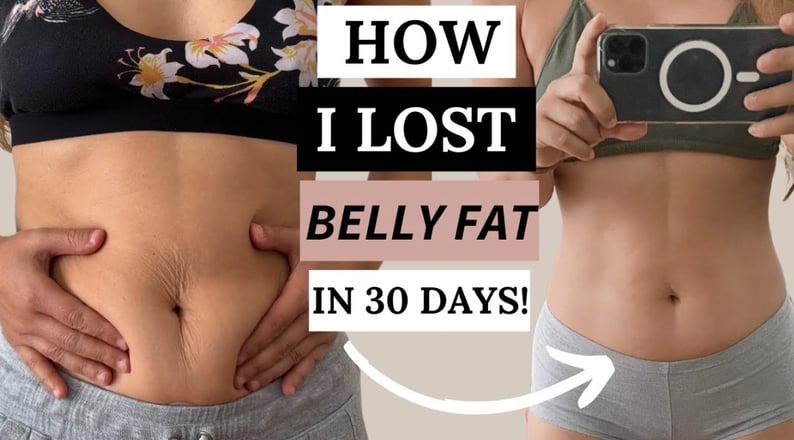What I Learned from 30 Days of Intermittent Fasting: My Journey to Better Health and Weight Loss
Discover the lessons and results from my 30-day intermittent fasting journey. Learn how to boost energy, lose weight, and improve digestion—plus tips to get started!
Mimir odin
3/17/20254 min read
What I Learned from 30 Days of Intermittent Fasting: My Journey to Better Health and Weight Loss
Intermittent fasting (IF) has become one of the most popular health trends in recent years, promising benefits like weight loss, improved energy, and better overall health. But does it really work? I decided to find out for myself by committing to 30 days of intermittent fasting.
In this blog, I’ll share my personal experience, the lessons I learned, and the results I achieved. Whether you’re curious about intermittent fasting or looking for tips to get started, this guide will give you an honest, in-depth look at what to expect. Let’s dive in!
What is Intermittent Fasting?
Intermittent fasting is not a diet but rather an eating pattern that cycles between periods of eating and fasting. There are several popular methods, including:
16/8 Method: Fast for 16 hours and eat during an 8-hour window.
5:2 Diet: Eat normally for 5 days and restrict calories to 500-600 on 2 non-consecutive days.
Eat-Stop-Eat: Fast for 24 hours once or twice a week.
For my 30-day challenge, I chose the 16/8 method, which felt the most sustainable for my lifestyle.
Why I Tried Intermittent Fasting
Like many people, I had been struggling with a few health and lifestyle issues:
Weight management: I wanted to shed a few stubborn pounds.
Low energy: I often felt sluggish, especially in the afternoons.
Digestive issues: Bloating and irregular digestion were becoming a problem.
Mental clarity: I wanted to improve my focus and productivity.
Intermittent fasting seemed like a simple, science-backed way to address these challenges without drastic changes to my diet or exercise routine.
My 30-Day Intermittent Fasting Plan
Here’s how I structured my 30-day intermittent fasting journey:
Fasting Window
16-hour fast: I stopped eating at 8 PM and didn’t eat again until 12 PM the next day.
Hydration: During the fasting window, I drank plenty of water, herbal tea, and black coffee to stay hydrated and curb hunger.
Eating Window
8-hour eating period: From 12 PM to 8 PM, I ate two balanced meals and one snack.
Focus on whole foods: I prioritized lean proteins, healthy fats, fiber-rich vegetables, and complex carbs.
Avoid processed foods: I minimized sugar, refined carbs, and processed snacks.
Exercise Routine
Light workouts: I did yoga or walking during fasting hours.
Strength training: I scheduled more intense workouts during my eating window for better energy and recovery.
What I Learned from 30 Days of Intermittent Fasting
Weight Loss is Achievable (But Not Overnight)
One of the main reasons I tried intermittent fasting was to lose weight. After 30 days, I lost 5 pounds, which may not sound like much, but it felt sustainable and healthy. The key takeaway? Intermittent fasting isn’t a quick fix—it’s a lifestyle change that requires patience and consistency.
Hunger is Manageable
The first few days were tough. I felt hungry and irritable during the fasting window. But by day 5, my body adjusted, and the hunger pangs disappeared. Drinking water, herbal tea, and black coffee helped me stay on track.
Energy Levels Improved
After the initial adjustment period, I noticed a significant boost in my energy levels. I no longer experienced the mid-afternoon slump, and I felt more focused and productive throughout the day.
Digestion Got Better
Intermittent fasting gave my digestive system a break, which reduced bloating and improved regularity. Eating smaller, balanced meals during my eating window also helped.
Mental Clarity Increased
Fasting seemed to sharpen my focus and mental clarity. I felt more alert and less distracted, especially during the fasting hours.
It’s Not a Magic Solution
While intermittent fasting helped me lose weight and feel better, it’s not a cure-all. I still needed to eat healthy, exercise, and manage stress to see the best results.
Tips for Starting Intermittent Fasting
If you’re considering trying intermittent fasting, here are some tips to help you get started:
1. Choose the Right Method
Start with a method that fits your lifestyle. The 16/8 method is great for beginners, while the 5:2 or Eat-Stop-Eat methods may work better for those with more experience.
2. Stay Hydrated
Drink plenty of water, herbal tea, and black coffee during your fasting window to stay hydrated and curb hunger.
3. Eat Nutrient-Dense Foods
Focus on whole, unprocessed foods during your eating window to maximize the benefits of fasting.
4. Listen to Your Body
If you feel unwell or overly fatigued, adjust your fasting schedule or consult a healthcare professional.
5. Be Patient
It takes time for your body to adjust to intermittent fasting. Stick with it for at least 2-3 weeks before deciding if it’s right for you.
How Nagano Tonic Supported My Journey
During my 30-day challenge, I incorporated Nagano Tonic into my routine to support my energy levels and overall health. This nutrient-packed elixir is designed to:
Boost metabolism: With ingredients like Camu Camu and EGCG.
Increase energy: Thanks to adaptogens like Ashwagandha and Eleuthero Root.
Support digestion: With ginger and inulin.
Just one scoop a day helped me stay energized and focused, especially during the fasting hours.
FAQs About Intermittent Fasting
Q: Can I drink coffee during fasting hours?
A: Yes! Black coffee is allowed during fasting hours and can help curb hunger.
Q: Will I lose muscle mass while fasting?
A: Not if you eat enough protein during your eating window and maintain a regular exercise routine.
Q: Is intermittent fasting safe for everyone?
A: While intermittent fasting is safe for most people, it’s not recommended for pregnant women, individuals with a history of eating disorders, or those with certain medical conditions. Always consult your doctor before starting.
Final Thoughts
My 30-day intermittent fasting journey taught me that small, consistent changes can lead to big results. While it wasn’t always easy, the benefits—like weight loss, improved energy, and better digestion—made it worth the effort.
If you’re curious about intermittent fasting, I encourage you to give it a try. Start small, listen to your body, and remember that it’s a journey, not a race.
And if you’re looking for an extra boost, try Nagano Tonic. It’s a delicious, easy way to support your health and energy while fasting.
Ready to transform your health? Start your intermittent fasting journey today!
Wellness
Your destination for Wellness, heath & Fitness, Your journey start here
Trust
contact@eleganbeautybrand@gmail.com
© 2024. All rights reserved.


